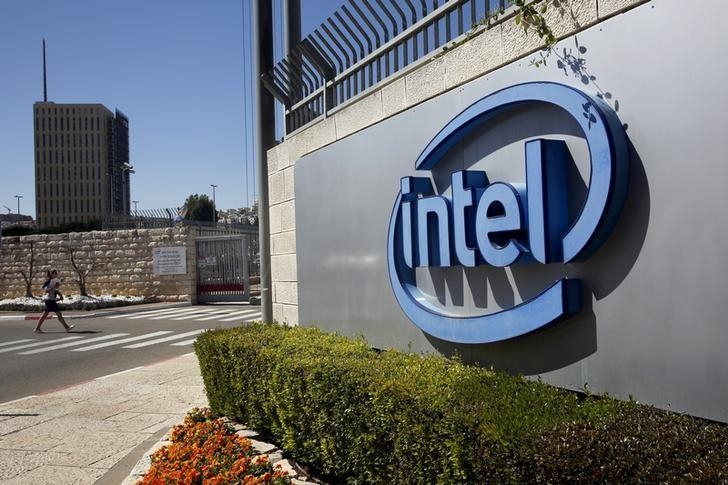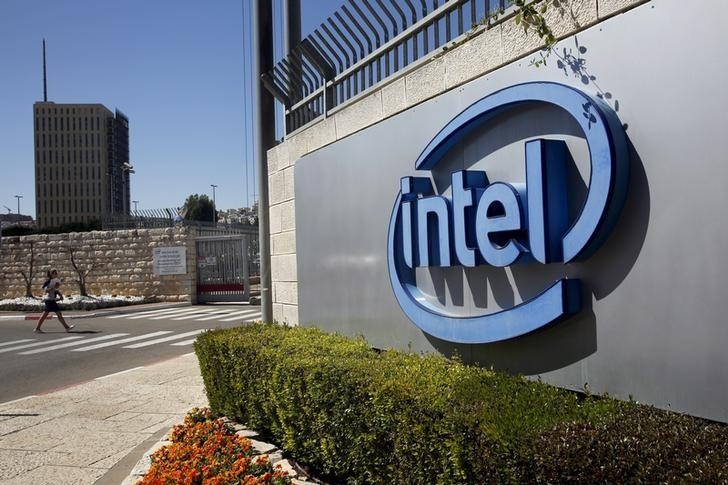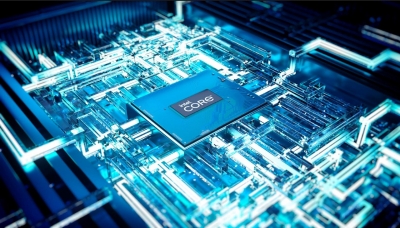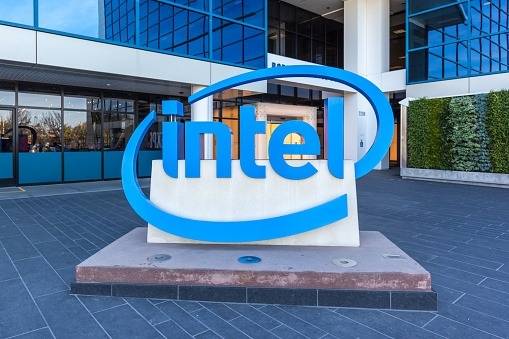The full-year revenue was $54.2 billion, down 14 per cent YoY from $63.1 billion a year ago….reports Asian Lite News
Chip-maker Intel has registered $15.4 billion in revenue in its fourth quarter (Q4) of 2023, up 10 per cent year-over-year (YoY).
The full-year revenue was $54.2 billion, down 14 per cent YoY from $63.1 billion a year ago.
Intel’s consumer chips witnessed 33 per cent gains ($8.8 billion revenue) and the company saw “record performance notebook shipments in the quarter.”
The company made $2.66 billion in profit in Q4, up from $796 million loss in the same period last year.
“We delivered strong Q4 results, surpassing expectations for the fourth consecutive quarter with revenue at the higher end of our guidance,” said Pat Gelsinger, Intel CEO.
“In 2024, we remain relentlessly focused on achieving process and product leadership, continuing to build our external foundry business and at-scale global manufacturing, and executing our mission to bring AI everywhere as we drive long-term value for stakeholders,” he added.
According to David Zinsner, Intel CFO, the company continued to drive operational efficiencies in the fourth quarter, and comfortably achieved its commitment to deliver $3 billion in cost savings in 2023.
“We expect to unlock further efficiencies in 2024 and beyond as we implement our new internal foundry model, which is designed to drive greater transparency and accountability and higher returns on our owners’ capital,” Zinsner added.
For the full year, the company generated $11.5 billion in cash from operations and paid dividends of $3.1 billion.
In client computing, Intel ushered in the age of the AI PC with Intel Core Ultra processors.
Built on Intel 4, the Intel Core Ultra processor is Intel’s most AI-capable and power-efficient client processor with dedicated acceleration capabilities across the CPU, GPU and NPU.
Global Semiconductor Industry Faces 8.8% Revenue Decline
The global semiconductor industry’s revenue declined 8.8 per cent in 2023 due to a slowdown in enterprise and consumer spending.
The overall 2023 semiconductor revenue rankings saw some big changes from 2022, like Intel reclaiming the top spot from Samsung as the latter suffered a lot from the memory sector downtrend as well as lacklustre smartphone business, according to Counterpoint Research.
AI provided positive news to the semiconductor industry, emerging as a key content and revenue driver, especially in the second half of the year.
NVIDIA appeared to be the largest beneficiary, followed by AMD. Both will be growing their AI-related businesses in the coming years.
“In general, we believe artificial intelligence (AI server, AI PC, AI smartphone, etc.) will continue to be a major organic growth driver in the semiconductor industry in 2024, followed by the memory sector’s rebound due to normalizing oversupply situation and demand recovery,” said senior analyst William Li.
The automotive sector could be another driver for the market due to content growth, which was already a key revenue driver for Infineon and STMicroelectronics in 2023, Li added.
Intel reclaimed its first place in semiconductor revenue rankings in 2023, though it reported a 16 per cent YoY decline in its revenue largely due to a double-digit YoY shipment decline in both the PC and server segments.
Samsung too was massively affected by the memory market slowdown in both DRAM and NAND segments, reporting a 38 per cent YoY decline in its revenue. The memory market was mainly hit by soft demand in the PC, server and smartphone segments as well as oversupply and excess inventory across the market.
SK hynix and Micron, two other major players in the memory market, also reported huge declines in their revenues at 33 per cent and 36 per cent YoY, respectively.
Intel Accelerates Electric Vehicle Drive
Chip-maker Intel has announced to acquire Silicon Mobility SAS, a fabless silicon and software company that specialises in chips for intelligent electric vehicle (EV) energy management, for an undisclosed sum.
At the ‘CES 2024’ here, the company also announced a new family of AI-enhanced software-defined vehicle system-on-chips (SoCs), with Zeekr as the first original equipment manufacturer (OEM) to adopt the new chip to deliver its generative AI-driven living room experiences to next-generation vehicles.
“Driving innovative AI solutions across the vehicle platform will help the industry navigate the transformation to EVs,” said Jack Weast, vice president and general manager of Intel Automotive.
“The acquisition of Silicon Mobility aligns with our sustainability goals while addressing a critical energy management need for the industry,” he added.
Intel also announced a commitment to deliver the industry’s first open UCIe-based chiplet platform for software-defined vehicles (SDVs).
Intel will work with imec to ensure the packaging technologies meet the rigorous quality and reliability requirements of the automotive industry.
Today, Intel chips are in more than 50 million vehicles, powering infotainment, displays, digital instrument clusters and more.
“Intel’s AI-enhanced SDV SoCs combine the best of AI PC and Intel data centre technologies necessary to support a true software-defined vehicle architecture,” Weast said.
To fuel a faster, smoother transition to EVs and a sustainable SDV, Intel and SAE International announced a committee to deliver an automotive standard for Vehicle Platform Power Management. Intel will chair the committee.
ALSO READ: India, France agree to deepen integration in key sectors












